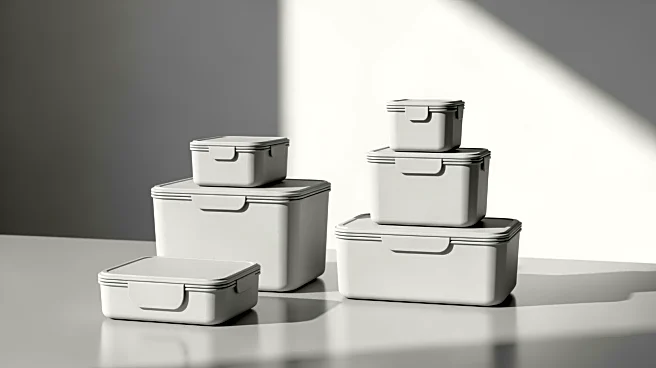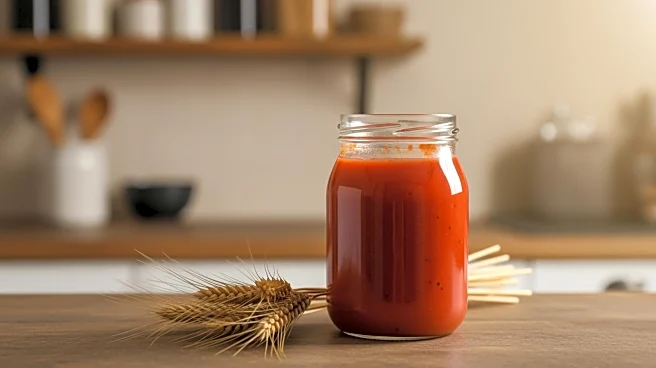What's Happening?
Dispatch Goods, a startup based in the San Francisco Bay area, has successfully navigated the challenges posed by the COVID-19 pandemic by pivoting its business model. Originally focused on providing reusable
food containers to corporate offices, the company faced a market collapse when the pandemic led to widespread office closures. However, leveraging $200,000 in seed funding from Berkeley SkyDeck, Dispatch Goods shifted its focus to the growing demand for freezer packs used in meal and grocery deliveries. The company now collects, cleans, and resells these packs, preventing them from ending up in landfills. This strategic pivot has allowed Dispatch Goods to expand its services and begin designing its own durable packaging.
Why It's Important?
The adaptation of Dispatch Goods highlights the resilience and innovation required for startups to survive in challenging economic climates. By addressing the environmental impact of disposable packaging, the company contributes to the circular economy, which aims to keep products in use for as long as possible. This approach not only reduces waste but also aligns with growing consumer and regulatory demands for sustainable business practices. The success of Dispatch Goods underscores the potential for startups to drive significant environmental change, even amidst political and economic uncertainties. The company's experience also reflects broader trends in venture capital, where funding for climate-focused initiatives may face challenges due to shifting political landscapes.
What's Next?
Dispatch Goods plans to continue expanding its services and product offerings, potentially increasing its impact on reducing packaging waste. As the company grows, it may seek additional funding to support its initiatives, navigating the complexities of the current venture capital environment. The broader industry may also see increased collaboration between startups and accelerators like Berkeley SkyDeck, which provide crucial support for innovative solutions to environmental challenges. The ongoing demand for sustainable packaging solutions suggests a promising future for companies like Dispatch Goods, as they contribute to a more sustainable economy.
Beyond the Headlines
The story of Dispatch Goods illustrates the broader implications of the circular economy, which emphasizes sustainability and resource efficiency. By focusing on reusable packaging, the company not only addresses immediate environmental concerns but also sets a precedent for other businesses to follow. This shift towards sustainability could lead to long-term changes in consumer behavior and industry standards, promoting a more environmentally conscious society. Additionally, the challenges faced by Dispatch Goods in securing funding highlight the need for supportive policies and investment in green technologies, which are essential for fostering innovation and addressing climate change.










